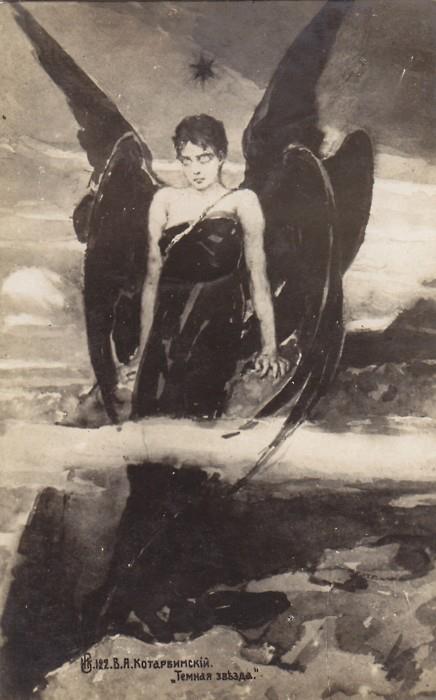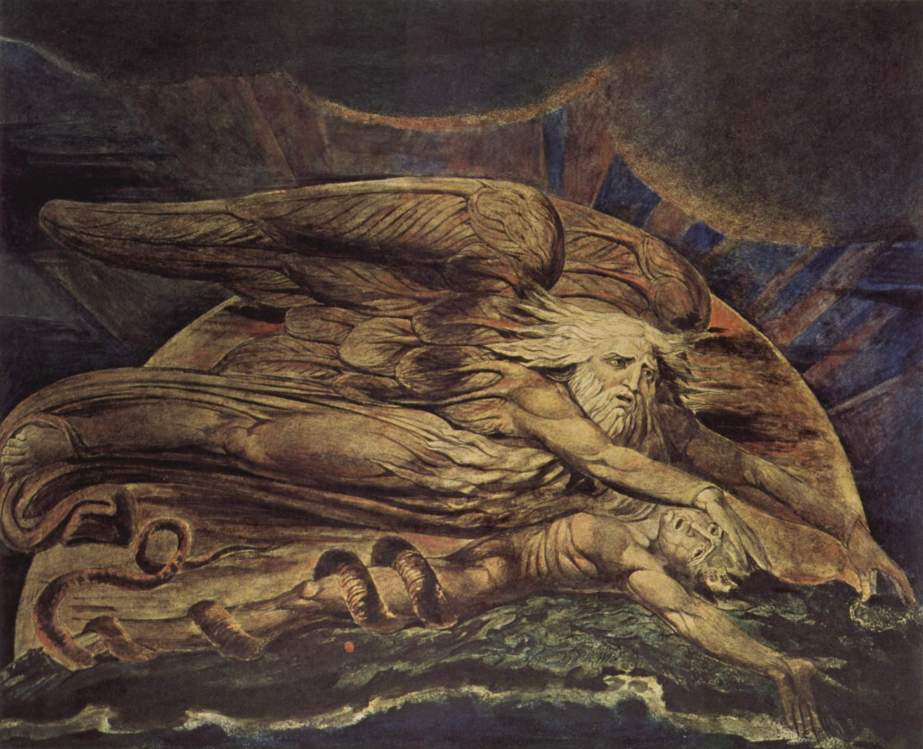The Book of Onei is an antinomian dream grimoire, providing deceptive yet true information about the art of Oneiromancy or dream magic in the form of poetry, fantasy, and intentionally ambiguous instructions.

When the Sons of the Crow came down on Onei, the terror of their first appearance was like the rising of a blood-red star. Their eyes were feral and vengeful and they were clothed in rags, black tatters like the wings of crows. Their fury lit first upon the City of Wisdom, which they destroyed completely in seven days. Men said that the Sons of the Crow were the fools of the wasteland, driven out from the City of Wisdom and returned now to take their vengeance, but none could say for certain. The Sons were like howling furies when they went into battle, and the wise could do nothing but die before them.
The Sons of the Crow were led by a prophet, a man who wore a long black crow’s mask to hide his face. The name of the prophet was Eyes Like Flowers, and the heads of huge sunflowers spilled out from the eye-holes in his black mask, so that none could tell how he could see.
There was a story about Eyes Like Flowers, but none could say if it was true or not. According to the story, the prophet was originally a common criminal, arrested for inciting a riot in the streets of the city. When the wise men of the city declared his death sentence, he only laughed strangely at them but would say nothing. They tied him to a stake and prepared the bonfire, and the man who would soon lead the Sons of the Crow began to sing. His voice was like the harsh screech of a cawing crow.
When my eyeballs bloom like flowers
And my hands go forth to war,
When the bell that tolls the hours
Cracks and falls and rings no more…
According to the legend, Eyes like Flowers became a prophet as he sang the song. Gigantic sunflower heads burst out through his eye sockets, and his eyeballs fell out just like little glass marbles. His hands burst into flame even though the city Headsman had not yet lit the match, and the bonds with which they had tied his wrists burned black and snapped off.
The clock on the great brass tower in the center of the city, a beautifully complicated mechanism of gears and dials, had just been ringing the hour of noon. As Eyes Like Flowers sang the words of his song, the bell in the clock-tower suddenly cracked, falling to the ground in an explosion of bricks and splintered wood.
Across the length of Onei, on the Blue-Green Ocean, a hot wind began to blow. The sun blazed like a malignant eye, and the drought began that destroyed the Pearl States. By the end of that decade, large sections of the Blue Green Ocean had been boiled away to desert, gleaming whitely like a plain of salt.
As Eyes Like Flowers sang his song, the Wise – who had been watching his intended execution from a nearby balcony – had their crimes laid bare before the people of Sophia, appearing as flickering images on the passing clouds. Qaran the Luminous, the great philosopher, was exposed as an embezzler of the city funds. Tendress the High Priestess was shown taking bribes from the wealthy to preach whatever they wanted her to preach. Setnel the Astronomer had stolen another man’s greatest discovery, then had his rival denounced as a fool and driven out into the wasteland.
It went on and on, and the people of the city were enraged by what they saw. The rioting that followed lasted for three days and four nights. Eyes Like Flowers disappeared, only to return at the head of his black-clad horde some ten years later. But all of this was only a legend, because no one outside the Sons of the Crow could say for certain, and the Sons of the Crow did not answer questions.
What is known is this. The prophet who was known as Eyes Like Flowers wore a crow mask with a long black beak, and long tattered robes that looked like crow’s wings. In the eye-openings of his mask, there were giant sunflowers. When the Sons of the Crow came out from the wasteland, he got up in front of them and sang this song:
And are we not of the sons of the crow,
Who worship a hidden creed?
Or those who seek but do not know,
And hear, but do not heed?
When they heard these words, his followers howled, and the frenzy of their bloodlust blotted out all other sounds. Man and woman, young and old, the Sons of the Crow held their spears on high, while their commanding officers held curved white scimitars. The Wise of Sophia sent out their army, but the army was massacred before the gates of the city. Those gates were barred, but the Sons of the Crow laid siege to the walls. The people of the back streets rose in rebellion, slaughtered the guards that held the gates, and threw them open to the Sons. They say the light from the flames could be seen in Qotar, but Qotar is more than two hundred miles away from what are now the ruins of the City of Wisdom.
That too is mere legend, but this is not: when the Sons of the Crow came down on Onei, the terror of their first appearance was like the rising of a blood-red star. From city to city and from land to land, the Sons of the Crow brought blood and fire. No one knew what they wanted and none could say what they believed, for their Prophet spoke only in riddles and poetry. To the High Priest of the Adoration in the Plain of Day, Eyes Like Flowers sang these words:
I climbed a staircase to the land of birds
And told them what I’d learned.
They didn’t care.
To birds, the world is made of clouds and air.
And then he inexplicably spared the Temple of Adoration from destruction by his horde, though the Temple of Wisdom was torn brick from brick and its priests impaled before the ruined walls.
Believing that the worship of Adoration must be favored somehow by the Sons of the Crow, thousands and thousands of people converted to that creed, and the whole land between what was once Sophia and what would someday be the Qalina became a stronghold of that faith. The Sons of the Crow did not always march, but disappeared into the deserts and the mountains for years at a time, reappearing to burn and kill. Yet when they did so, they showed no favor to any, burning the cities of the Adoring just as readily and as ruthlessly as any other.
When the fear of the Sons of the Crow had become too great to endure, and the fact that they favored no faith had become too obvious to ignore, a prophet arose from among the ranks of the Adoring. He was known as the Flagbearer, and he carried a flag before him into battle instead of any kind of weapon. All his followers did the same. The followers of the Flagbearer refused to fight, but only carried their flags ahead of them and stood before the Sons of the Crow. They died in their thousands, surrendering their own lives willingly as a shame and a rebuke. When the Flagbearer stood before Eyes Like Flowers, the mad prophet broke down and wept, singing these words as he fell to his knees:
We come to you with broken beaks
And wings like crippled birds.
It’s better not to even speak
Than lose the weight of words.
Then all of the Sons of the Crow dropped down to their knees, and their spears and their scimitars fell out of their hands. Their eyes were wet with sorrow and remorse, and the terror of their own damnation. But the Flagbearer replied with kindness:
On bended knee I sought the source
Of all that moves above,
And only when I knew remorse
Decided it was love.
The awful kindness of the Flagbearer shamed the Sons of the Crow so that they took their own lives, unable to live with the horror that they had made. And so the Flagbearer saved the lands that would become the Qalina, the Empire of the Adoration. Yet he was not to be honored, for the priests of the Adoration could never trust him. He had no blood on his hands, but the shame he inspired, the example of a thrilling and terrible love, had destroyed an entire army. And so they had him burned alive, and his followers scattered to the corners of the earth.
There were those who disapproved, but one old man who witnessed the execution nodded solemnly as the flames rose high. As he turned away from the pile of ashes, he was heard to say this:
He told me he could teach the art
The world was built upon.
And yet, within my secret heart,
I smiled when he was gone.
Image by Vasily Alexandrovich Kotarbinski






